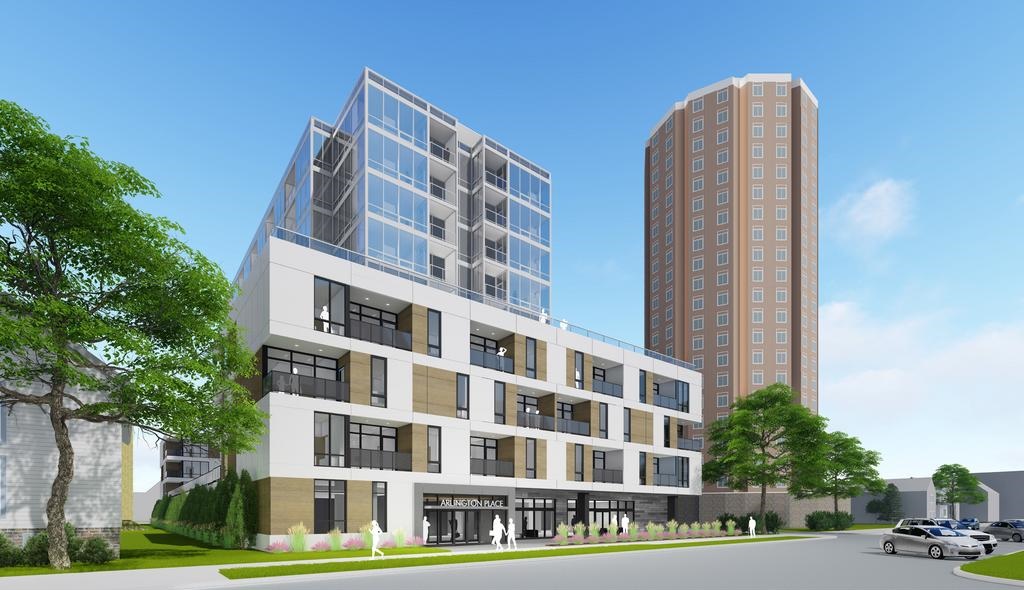Community Input’s Impact on Housing
All the city news you can use.

Easton Apartments was originally proposed to be a 10-story, 140-unit building, after neighbors expressed concerns a 5-story, 96-unit building was built. Rendering by Eppstein Uhen Architects.
Every day at The Overhead Wire we sort through over 1,500 news items about cities and share the best ones with our email list. At the end of the week, we take some of the most popular stories and share them with Urban Milwaukee readers. They are national (or international) links, sometimes entertaining and sometimes absurd, but hopefully useful.
Olmstead’s 200th birthday: Tuesday would be famed Landscape Architect Frederick Law Olmsted‘s 200th birthday. His thinking on design would change the way we think about urban parks and the restorative nature of green space in urban spaces. While most know his most famous work of central park in New York City, he designed as part of his practice hundreds of other parks around the country. A new guide features some of these lesser known spaces. (Nate Berg | Fast Company)
Transportation equity means lowering costs: Owning and operating a motor vehicle is expensive, so much so that in Tampa Florida it can take up 25% of the median wage earners income. Part of the reason is that in many cities like Tampa, transit is not a good first choice to reach a destination. To make transportation more equitable, the best way would be to reduce the overall cost and allow people to keep more of their own money. (Skip Descant | Government Technology)
Who rules transit?: TransitCenter has released a new report discussing who runs transit agencies and sits on boards around the United States and how they not representative of the population they serve. In a sample of 108 board members in 11 cities, TransitCenter found that only 36% were people of color compared to 58% of the population and 63% of transit riders. And geographically, suburban board members are over represented as well. (TransitCenter)
Merging cities for the climate: Small municipalities in French speaking southern Belgium are getting funding from the government to merge with other small municipalities in order to streamline administrative costs. Belgium is offering to take on the municipal debt of cities that merge, giving them more resources to deal with climate change and other important issues. (Denis Balgaranov | The Mayor.eu)
Quote of the Week
The problem with this narrow obsession is that while Moses may be the paradigmatic racist urban planner, he was certainly no outlier. He has also been dead for forty years, yet urban planning continues in myriad ways the same racially harmful practices of his era.
–Roshan Abraham in The Baffler wondering why we ignore people as neighborhood assets, instead focusing on infrastructure.
This week on the podcast, Frank Markowitz and Leni Schwendinger talk about creating legible nighttime spaces, programming those spaces, and the future of lighting and transportation.
Want more links to read? Visit The Overhead Wire and signup.
Urban Reads
-
How Traffic Noise Impacts Children’s Brains
 Jul 1st, 2024 by Jeff Wood
Jul 1st, 2024 by Jeff Wood
-
Number of Super Commuters is Rising
 Jun 22nd, 2024 by Jeff Wood
Jun 22nd, 2024 by Jeff Wood
-
Why Has the Walkable City Been Villainized?
 Jun 9th, 2024 by Jeff Wood
Jun 9th, 2024 by Jeff Wood




















